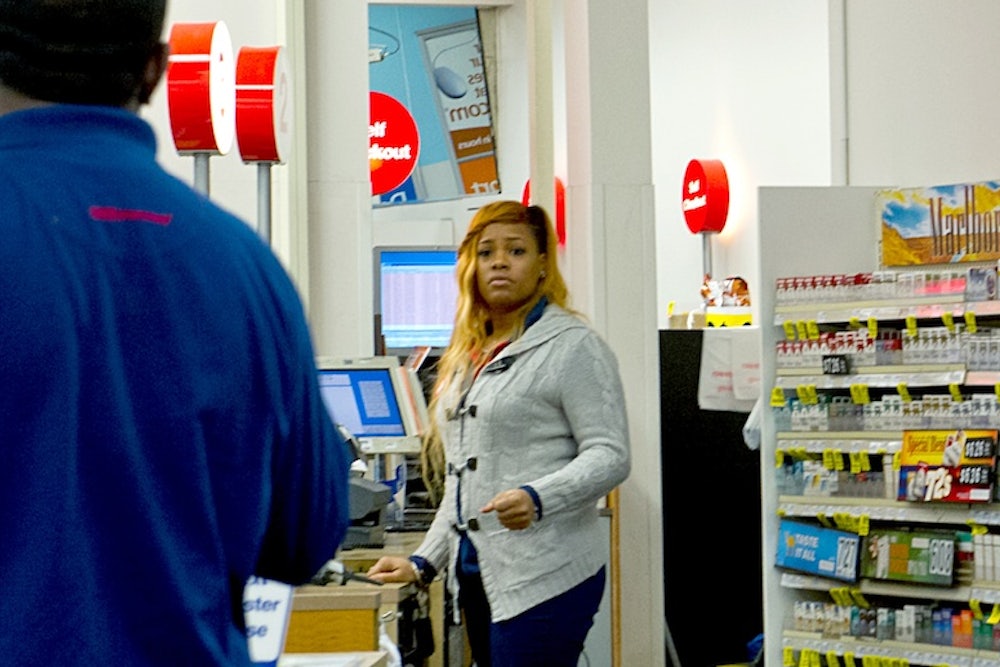Buying cigarettes just got a little more difficult. On Wednesday morning, CVS Caremark announced that it would stop the sale of tobacco products from its drugstores. The announcement says a lot about what’s happening to smoking in this country. But it may say even more about what’s happening to the health care system.
Although the announcement from CVS will take most people by surprise, public health advocates and trade groups like the American Cancer Society have been calling on drug stores to stop tobacco sales for a long time. The pharmacy companies never heeded the calls, since they made a lot of money on cigarettes and other such wares. But smoking isn’t exactly a growth market anymore, at least here in the U.S. Fewer and fewer people are smoking, thanks to a combination of effective advertising campaigns, cultural pressure, and higher taxes on tobacco products. As a result, sales of cigarettes keep falling, according to the U.S. Centers for Disease Control, with rising sales of cigars and other cigarette alternatives offsetting only part of the decline:
Meanwhile, one of the biggest business opportunities for pharmacies is in the operation of retail medical clinics—that is, in-store facilities where people can go for routine medical needs, whether it’s to treat an acute but minor condition (like a sore throat) or to get basic tests and treatment for a chronic disease (like diabetes). Once upon a time, the rationale for such clinics was mostly their ability to offer quick, cheap care at unusual hours—or to help people without existing relationships to doctors. But the aging population and, now, the provision of decent health insurance to millions of previously uninsured Americans has created a much bigger demand for primary care. The supply of primary care physicians can’t keep up, as this chart from the Hartford Courant shows:
For the past few years, pharmacy chains have been providing the care that more traditional medical practices cannot. In the next few years, the chains hope to provide a lot more of it. On a conference call Wednesday morning, Troyen Brennan, MD, chief medical officer for CVS, said the company already has 800 clinics in operation and plans to expand to 1500. That seems roughly consistent with the national trend. A recent study from Accenture suggested the number of clinics would double between 2012 and 2015:
This growth is what prompted CVS to stop tobacco sales, according to company officials: “We are retooling ourselves as a company,” Brennan said. “How can you continue to sell tobacco when you are part of the health care system?”
Whether clinics can provide quality care at lower costs, as their proponents claim, is a separate and complicated question. But the implications for tobacco use are a little clearer. Richard Hurt, a physician and well-known researcher on tobacco at the Mayo Clinic, told the New Republic he thought the announcement was “a big deal” and “an act of courage.” Ronald Bayer, a professor and expert on tobacco at Columbia University’s Mailman School of Public Health, said it was “an important move not simply because it may make the purchase of cigarettes a bit more inconvenient, but because of the profound cultural message it sends about the status of cigarettes and smoking. It is one more element in the socio-cultural effort—sometimes direct, sometimes indirect—to denormalize smoking.”
Both men wondered (hopefully) whether other big chains, like Walmart and Duane Reade, would follow suit. At least one other expert, oncologist and University of Pennsylvania Vice Provost Ezekiel Emanuel, seemed confident they would. “This is a major, MAJOR announcement in my view,” Emanuel said via e-mail. “It will start a cascade. Soon only 7-11 and corner bodegas will sell them.”
